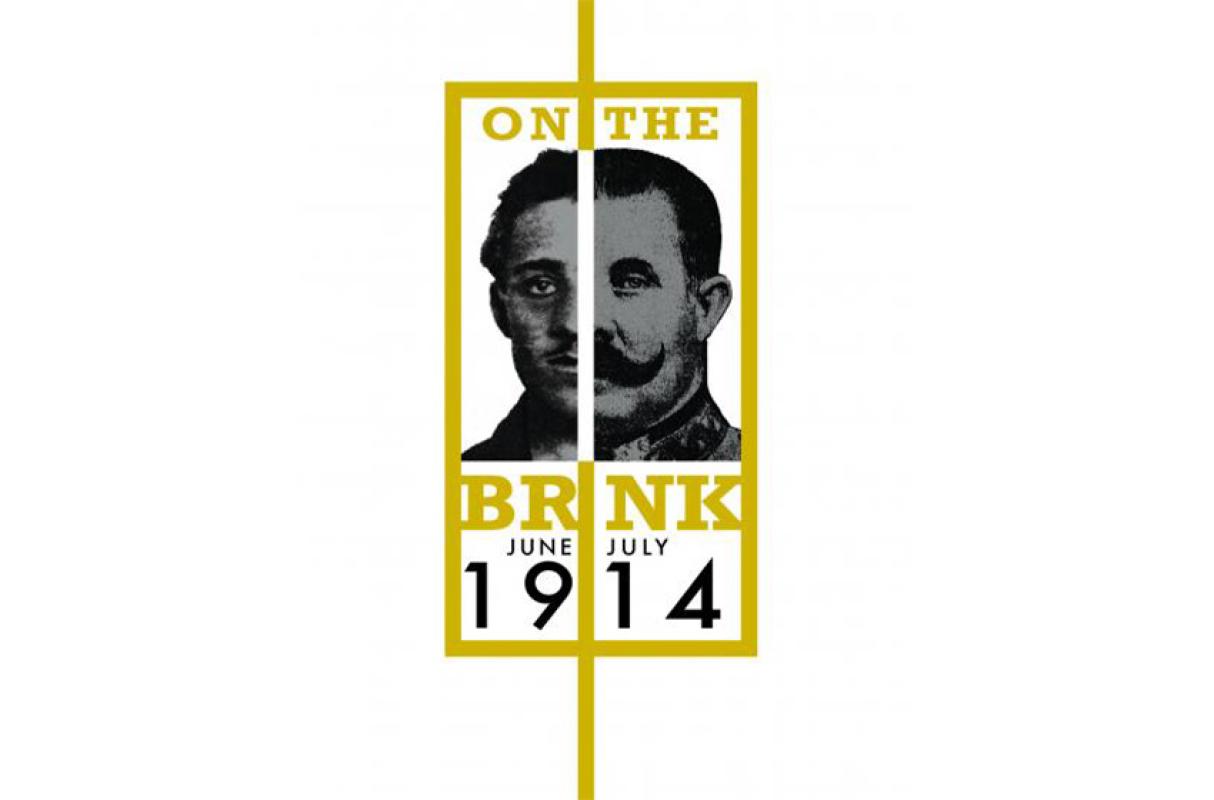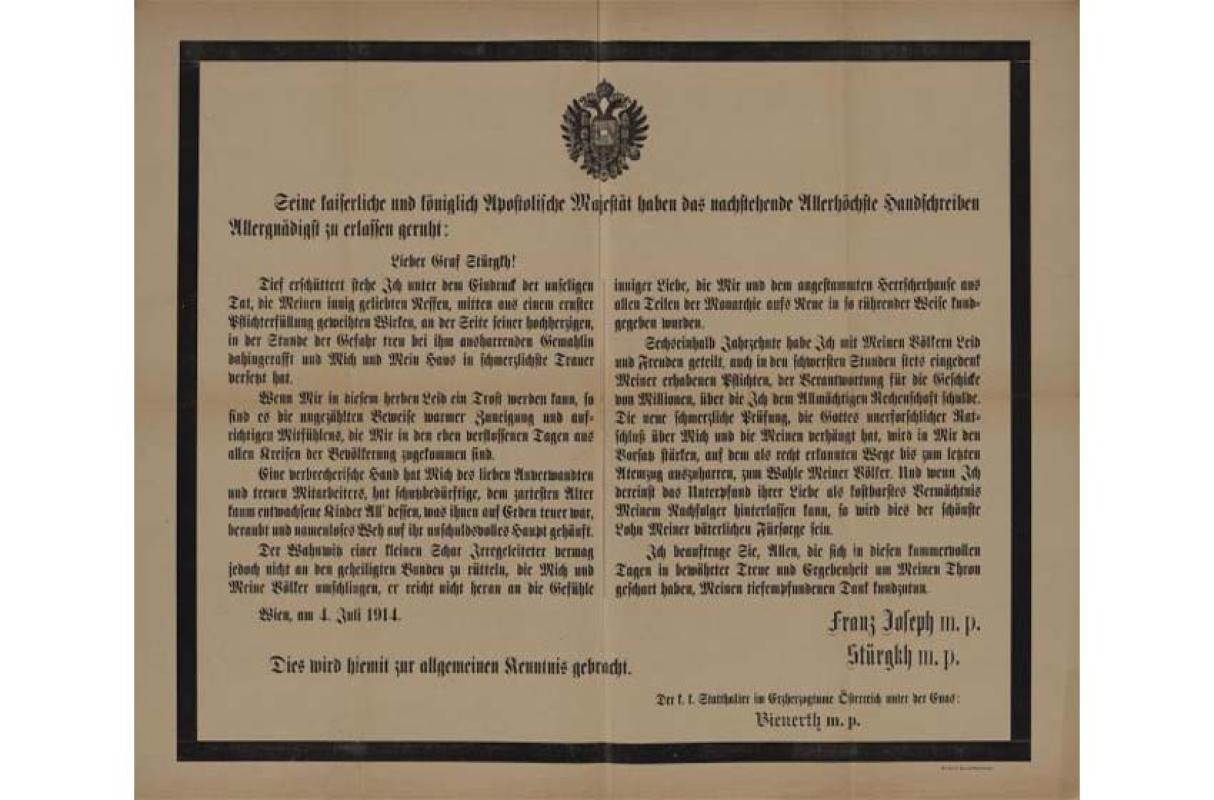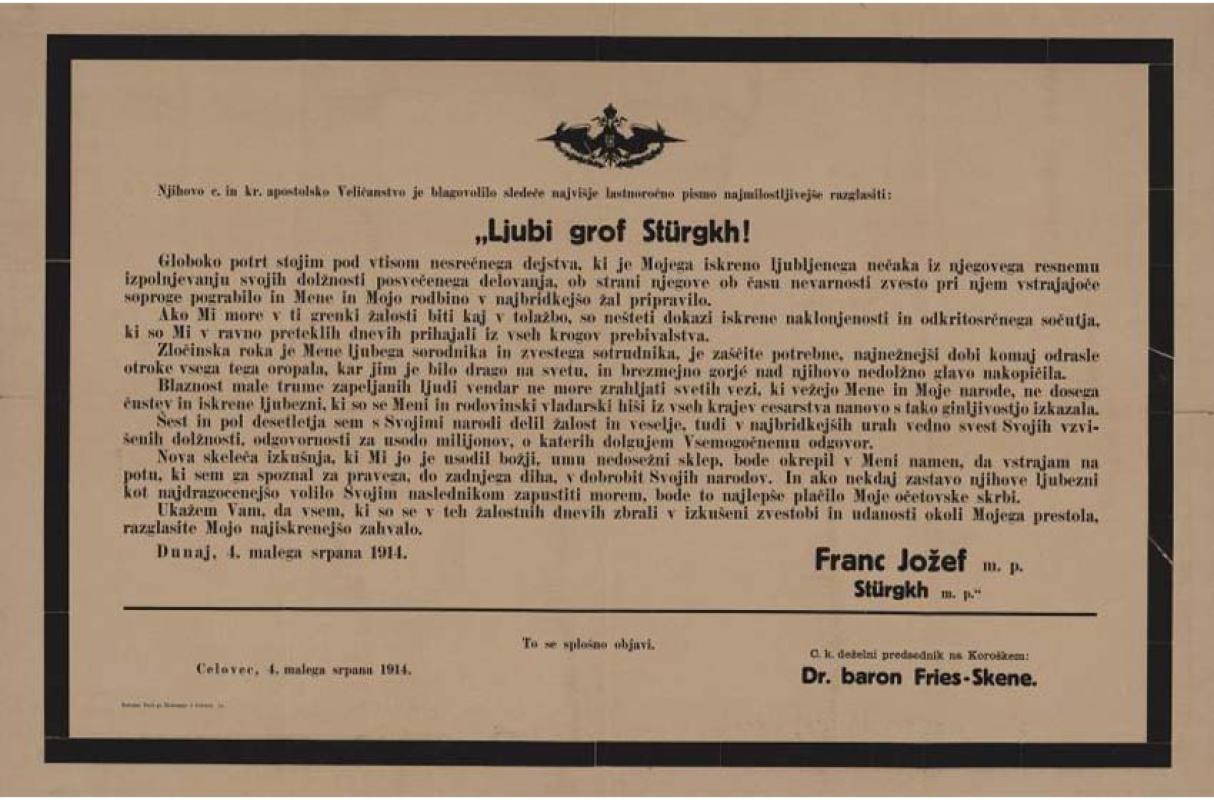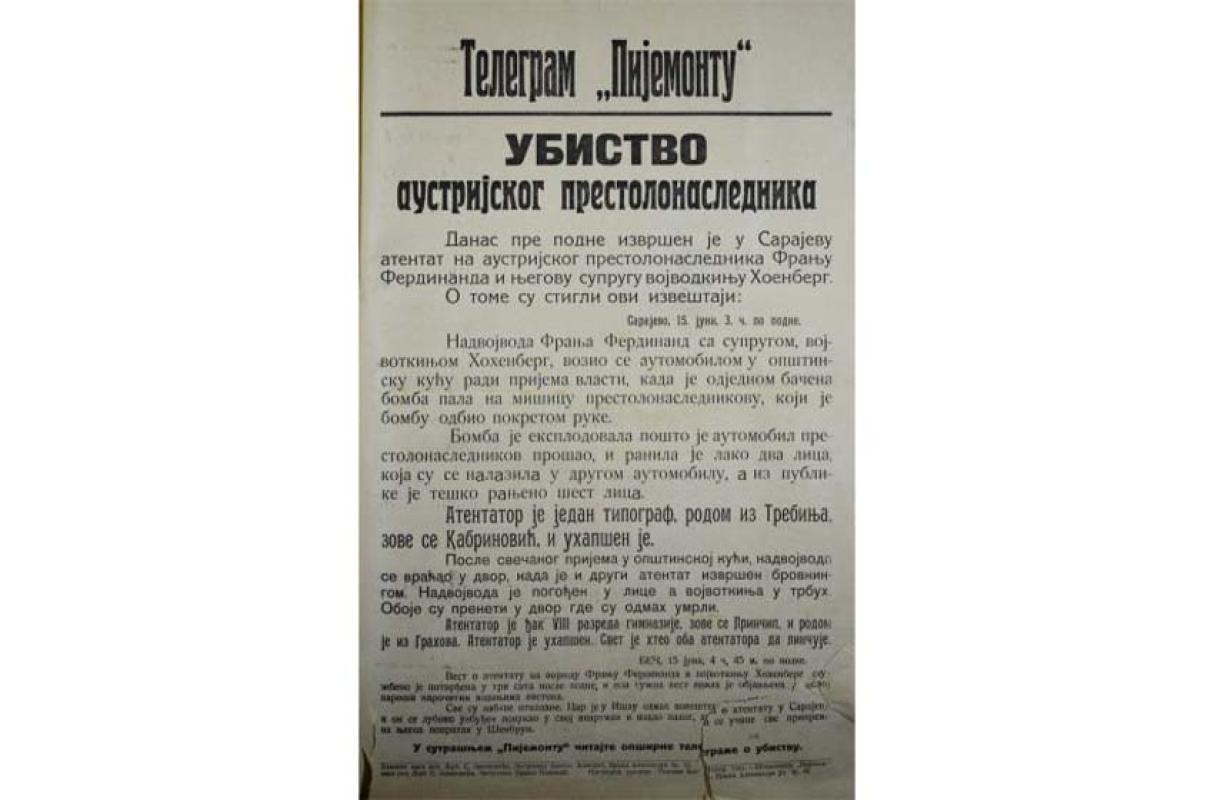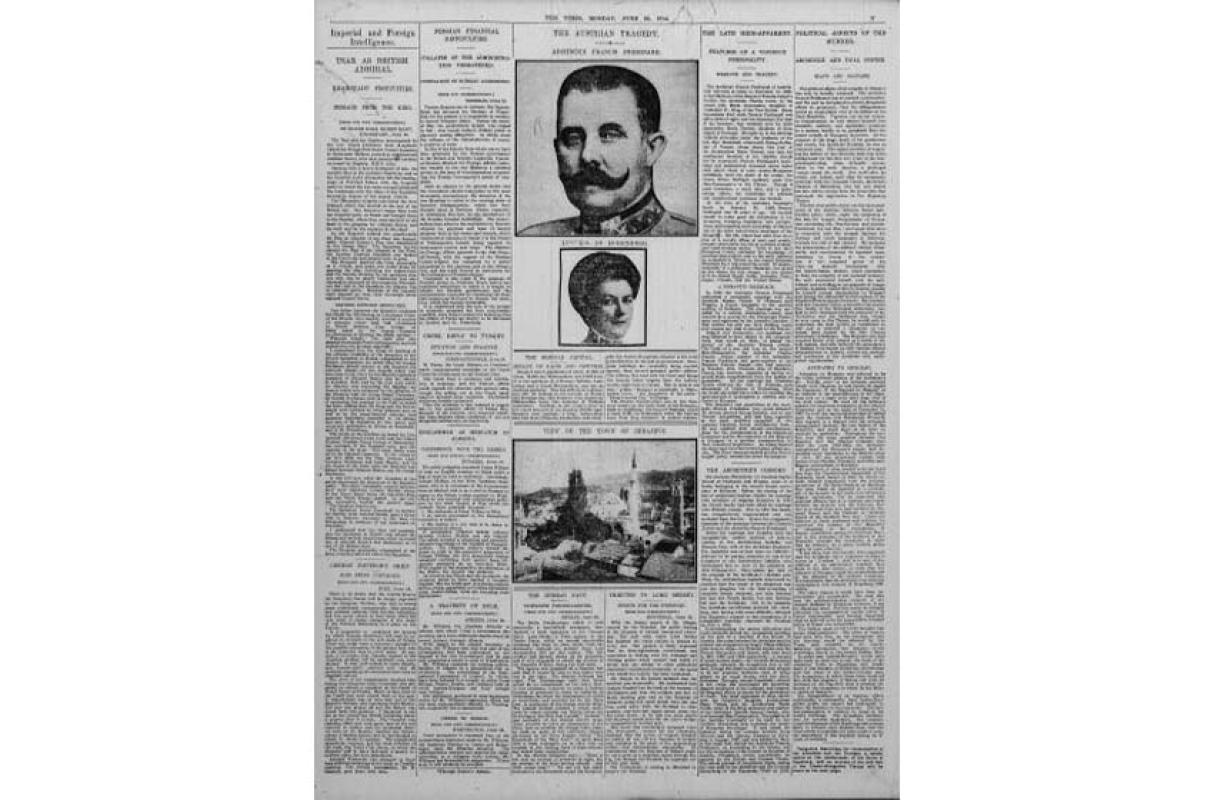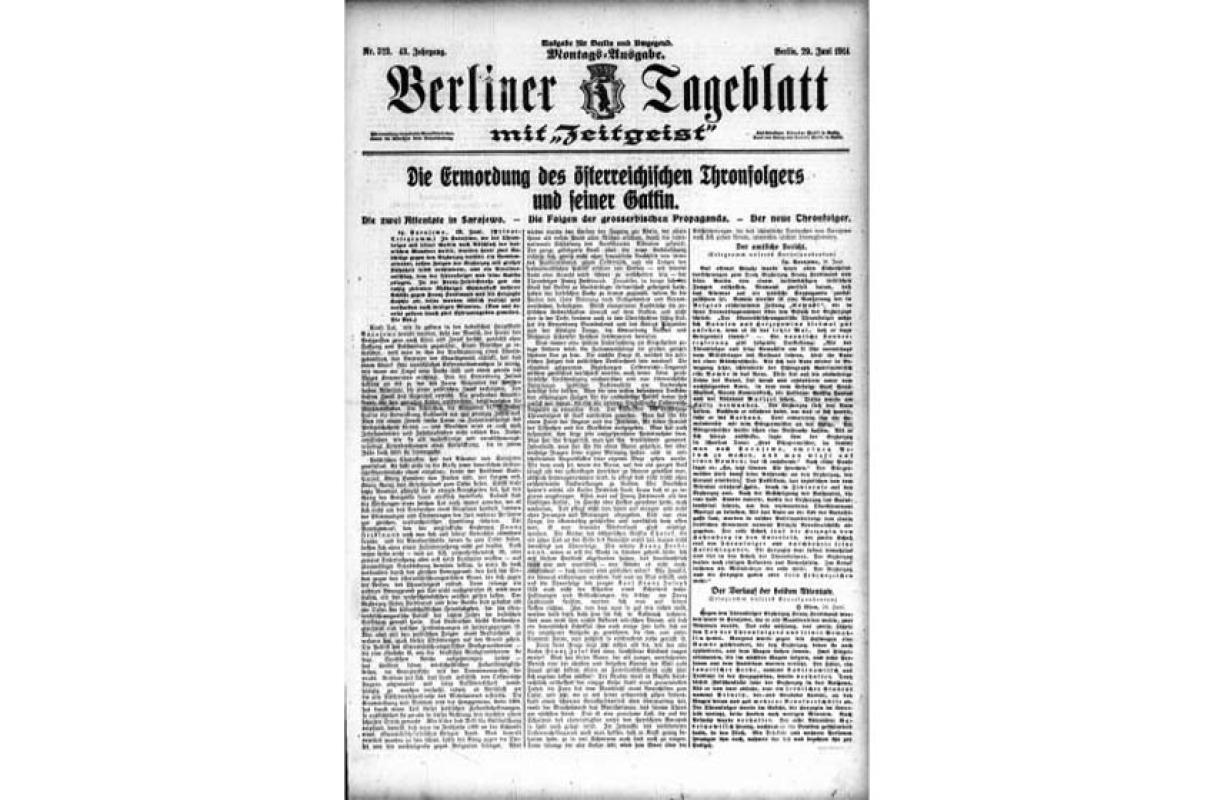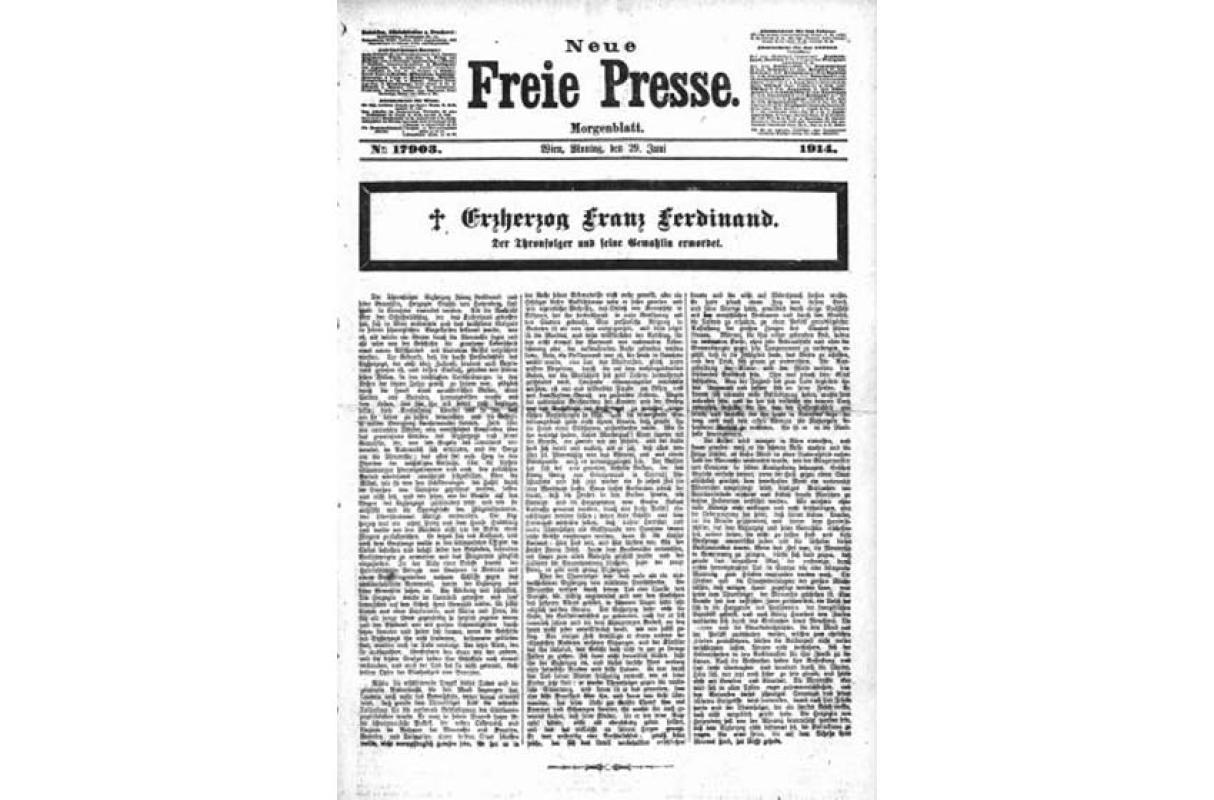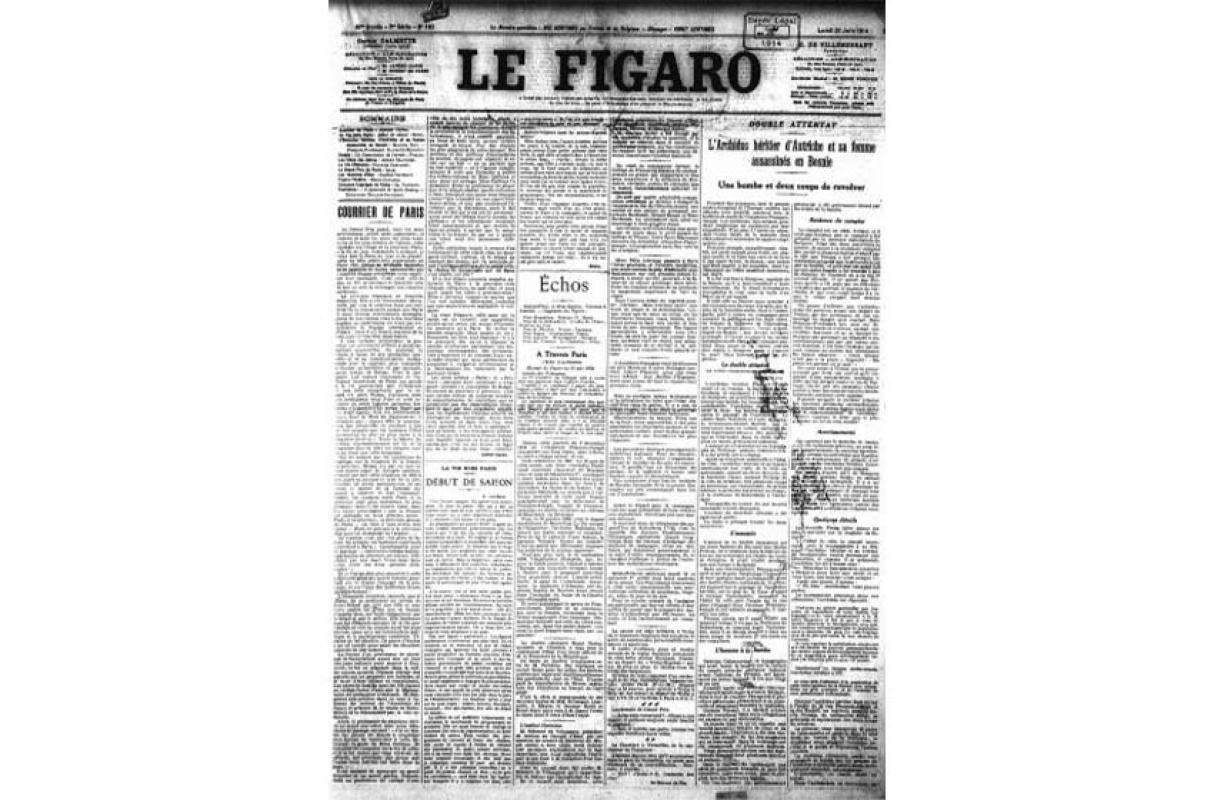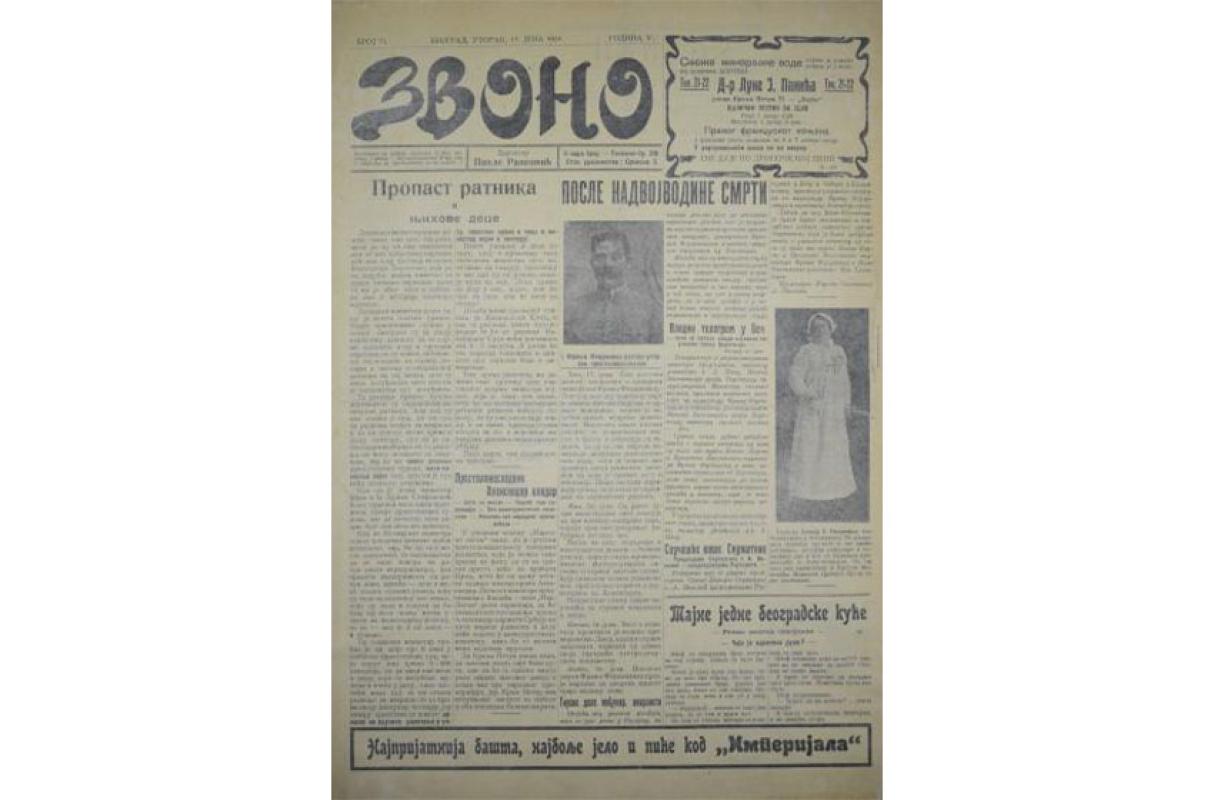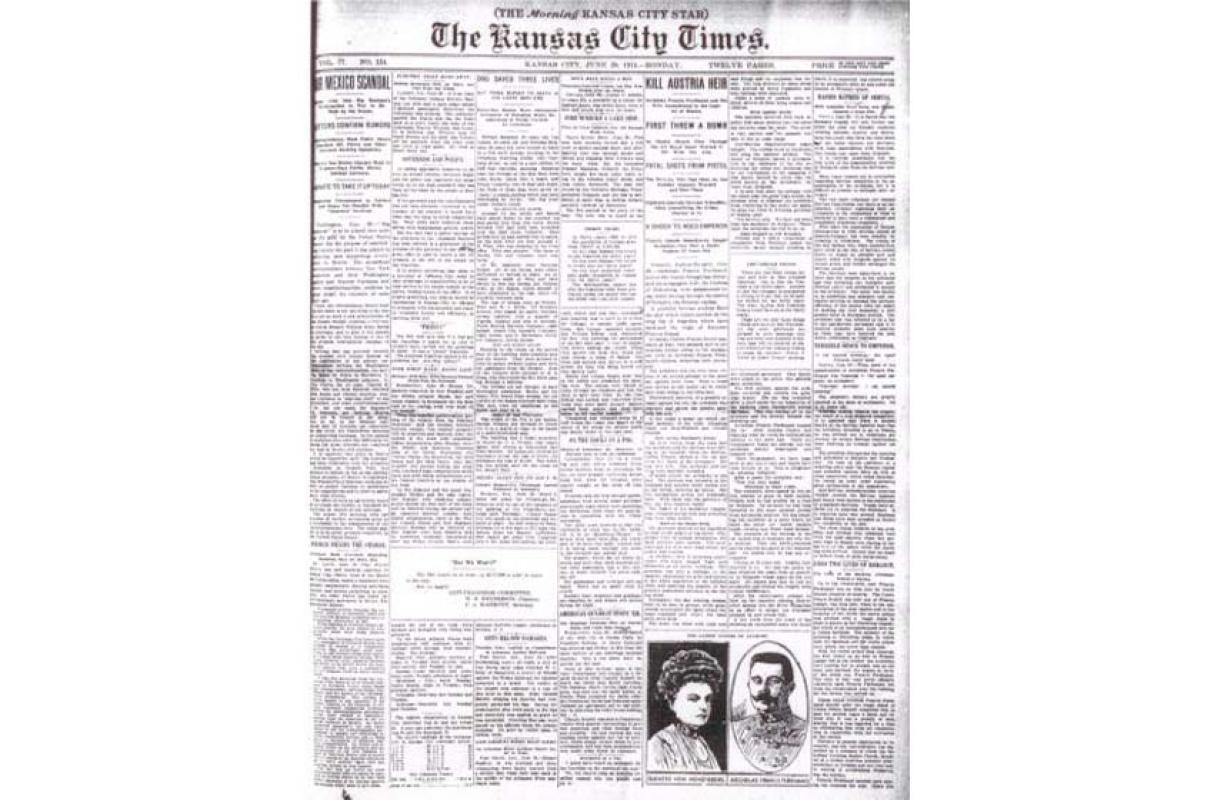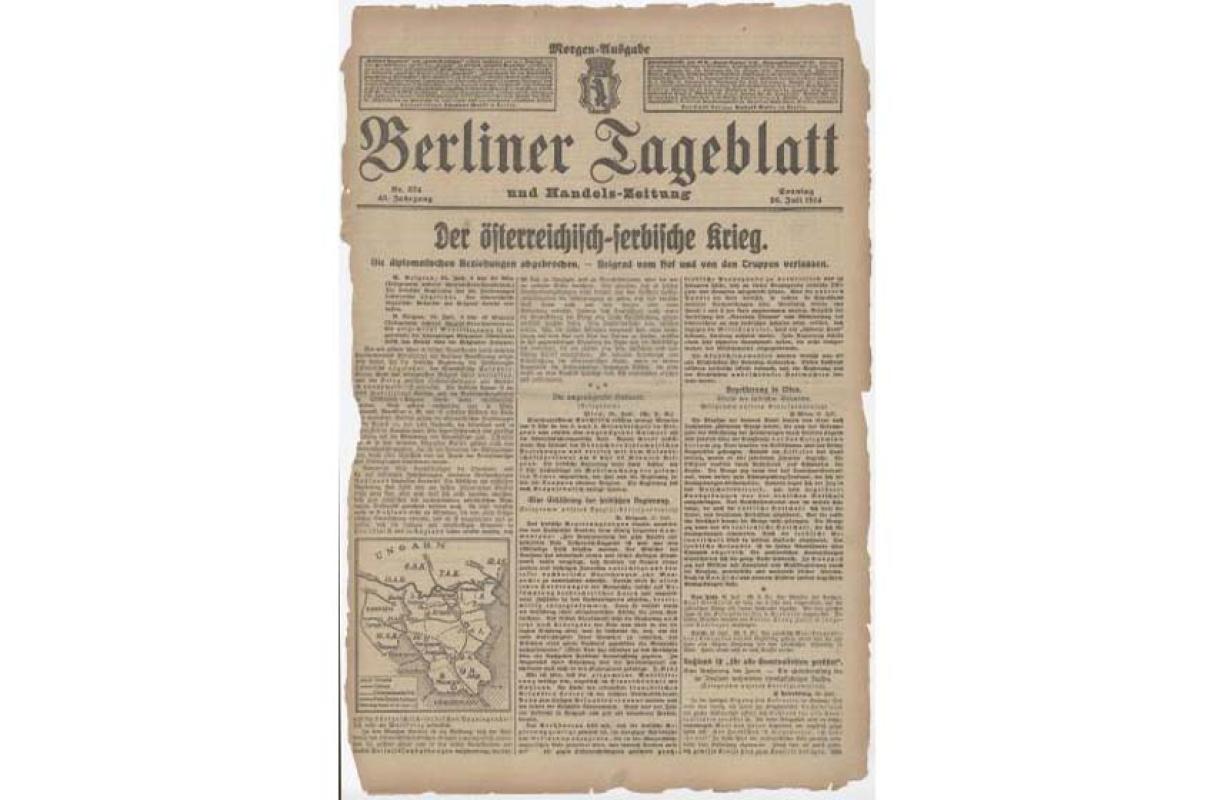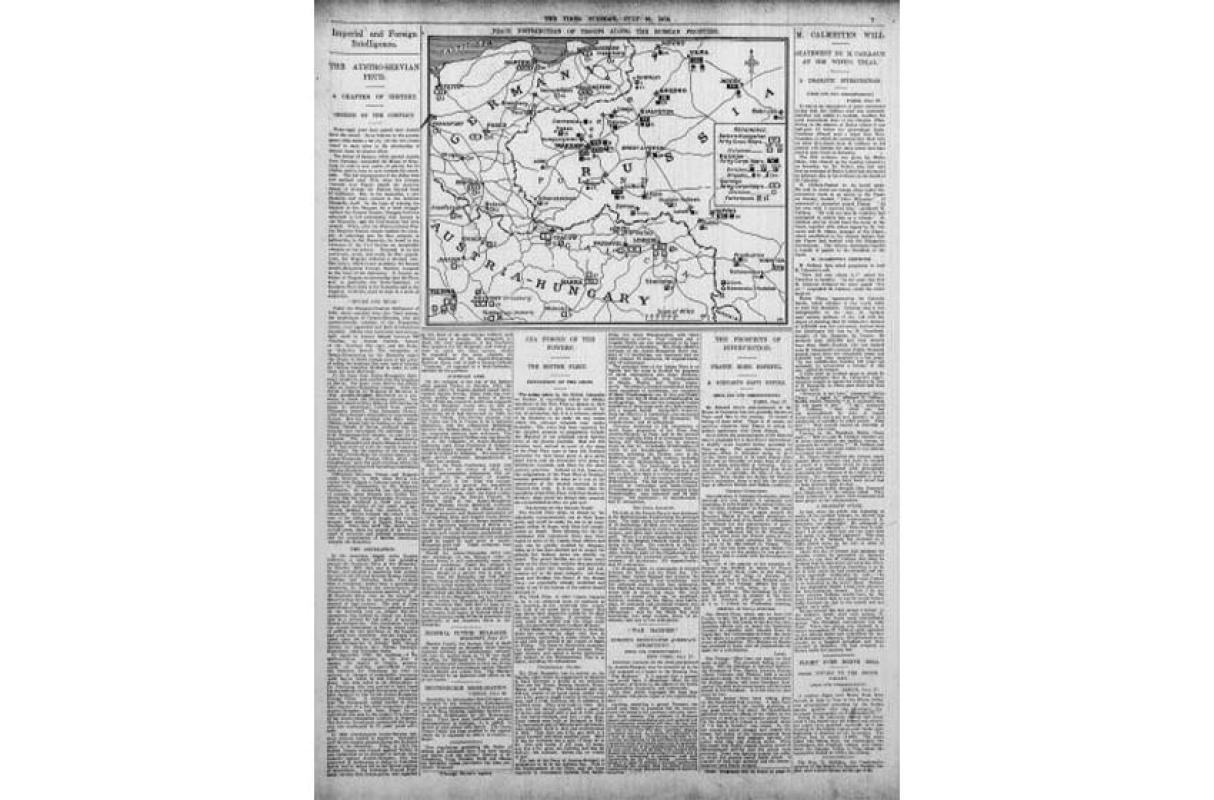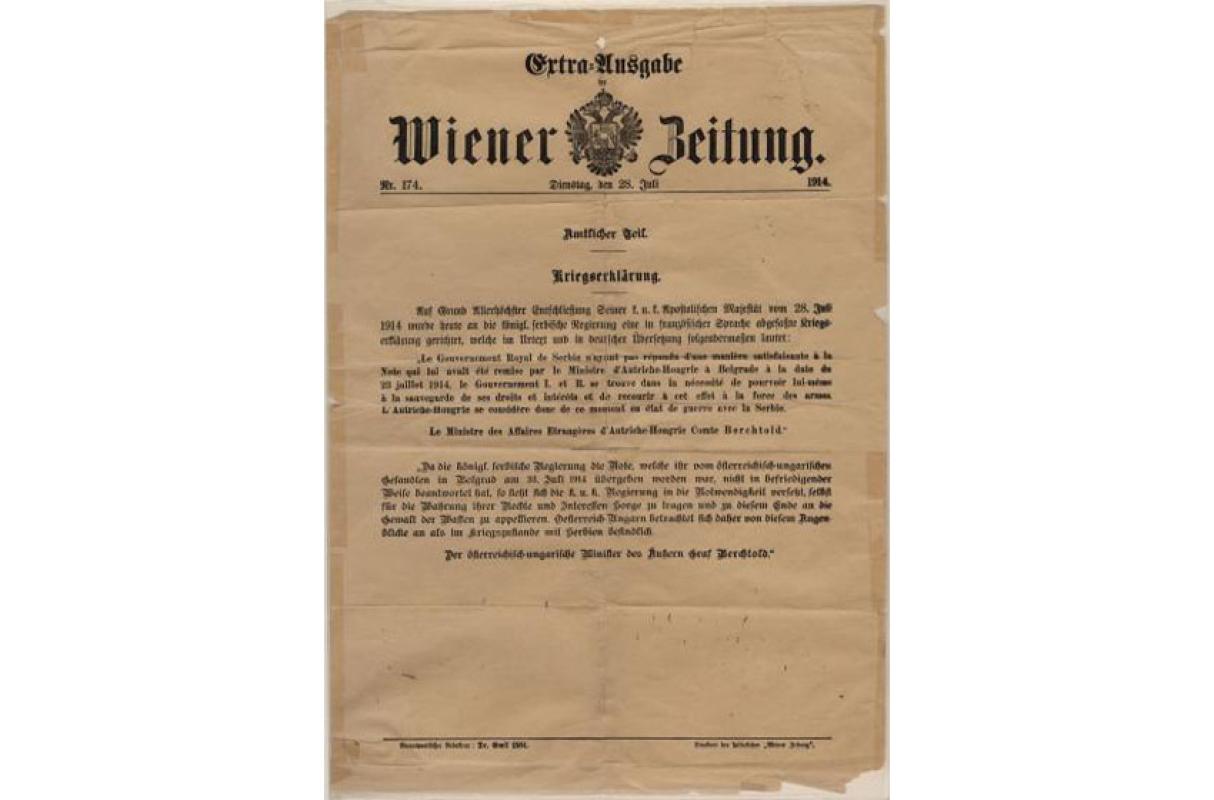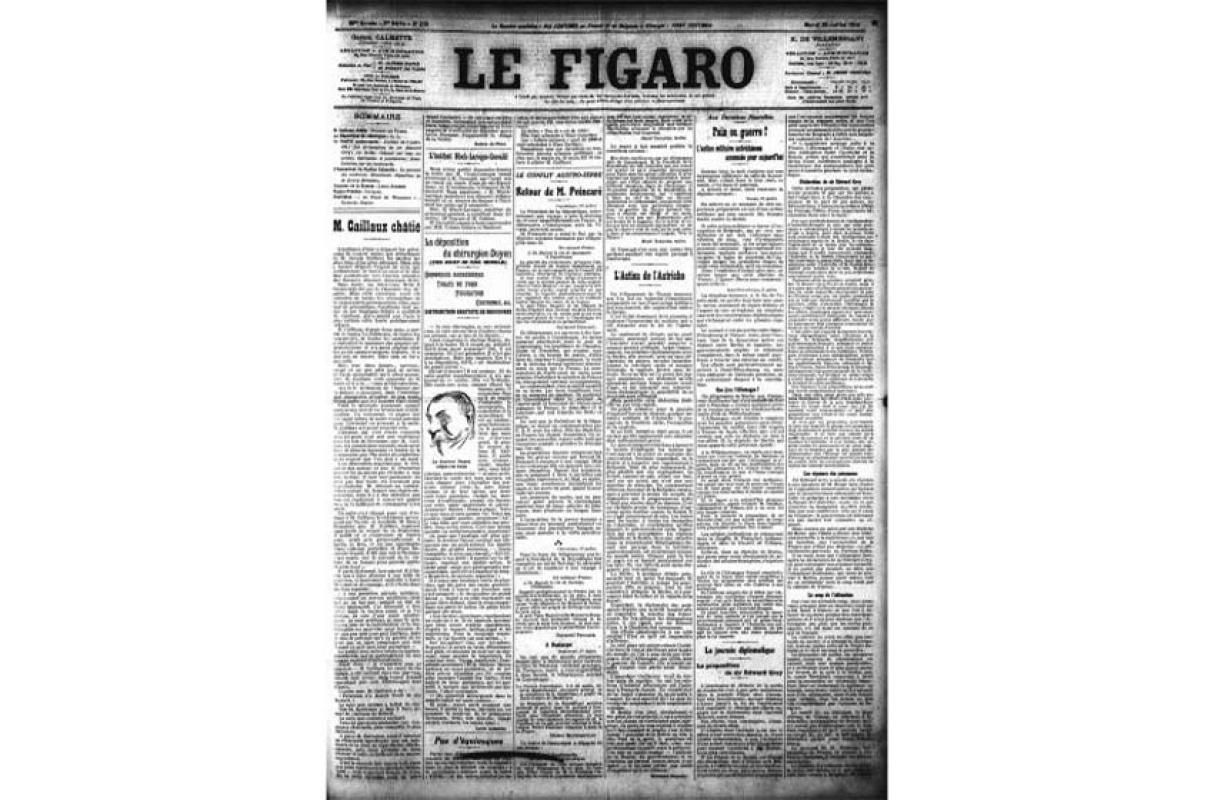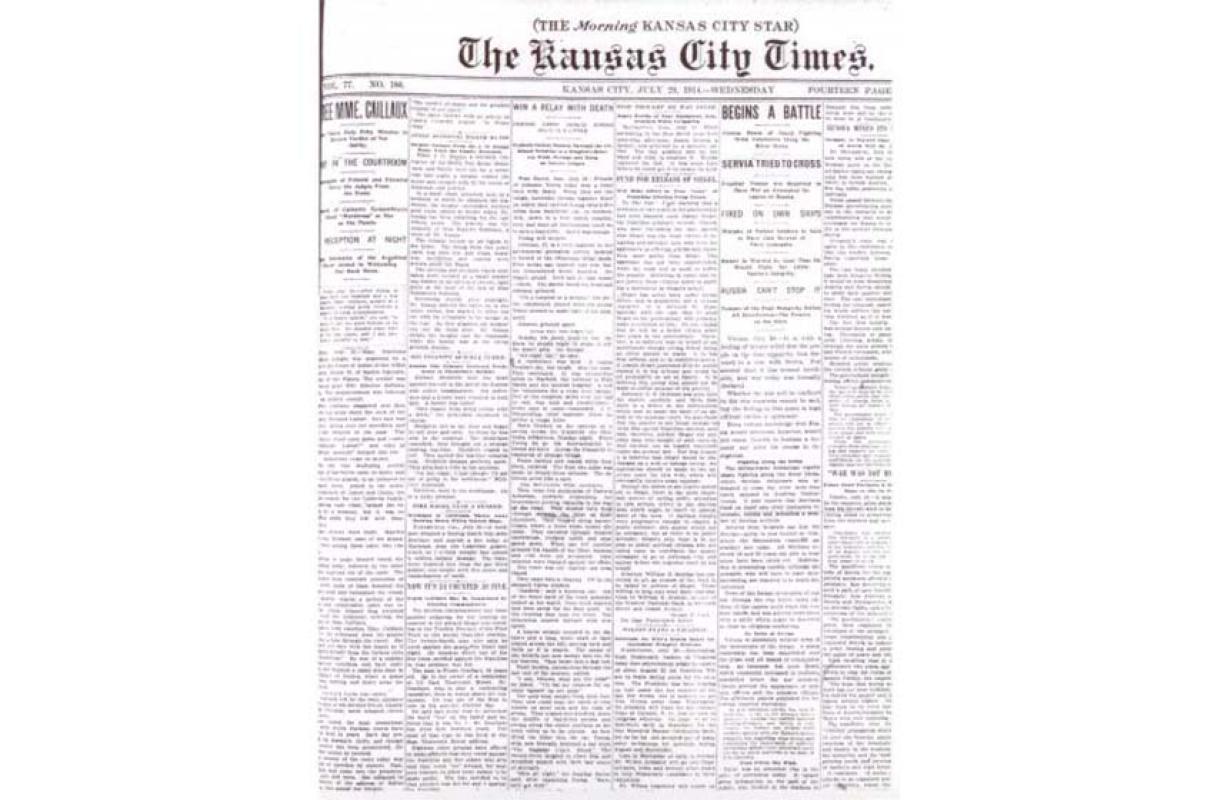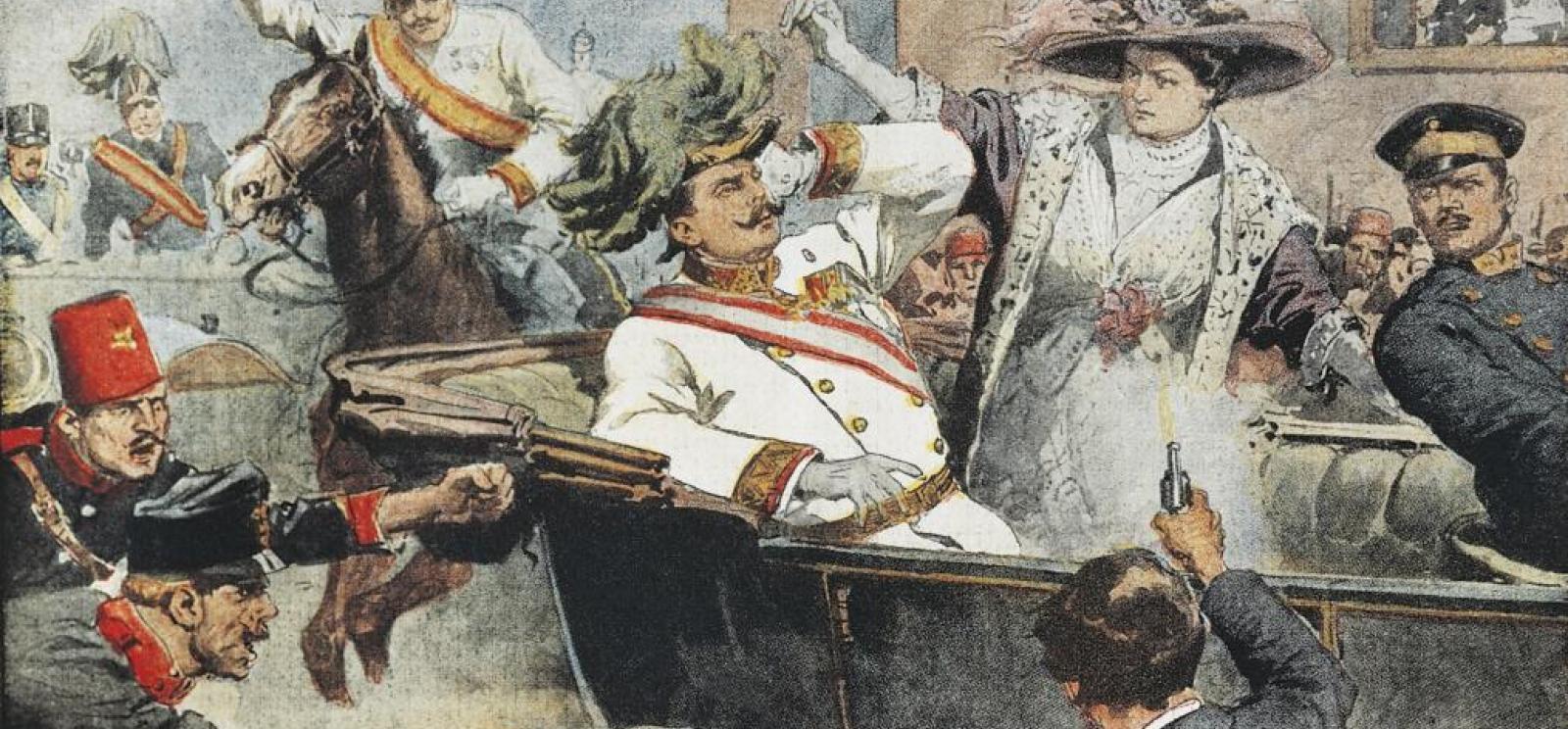
“For many years hatred against the Monarchy has been sown in Servia. The crop has sprung up and the harvest is murder."
— Ritter von Storck, Austria-Hungary Secretary of Legation in Belgrade, on June 29, 1914
A hungry teenage assassin and a wrong turn. The two bullets fired on June 28, 1914 outside of a delicatessen in Sarajevo, the capital of Bosnia-Herzegovina, placed the world “on the brink” and led to a sequence of events that changed the world forever.
Secret societies and nationalist organizations strove for an independent Slavic nation free from foreign domination, unknowingly represented on that fateful day by the Archduke Franz Ferdinand, heir to the Austro-Hungarian throne.
On the Brink: A Month That Changed the World examines the underground organizations, diplomatic communications and international newspaper reporting of the assassination and its political aftershock. The exhibition presents the assassination in a manner never seen before.
The assassination was pretext for the Austro-Hungarian Empire to declare aggressive action, with the intention of a short-lived conflict, in its long-standing feud with Serbia. A war declared between an empire and its neighbor on July 28, 1914 eventually resulted in combatant nations from five continents involved in the world's first global conflict by the end of August, 1914.
The exhibition incorporates a journalistic and documentary approach and portrays the story of the assassination and aftermath through a series of newspaper articles, photographs and quotes from diplomatic sources. The comprehensive exhibition is represented with items from:
- Austria-Hungary
- France
- Germany
- Great Britain
- Italy
- Russia
- Serbia
- Slovenia
- United States
This special exhibition was created with support from the Austrian National Archives, Serbian National Archives, Library of Congress, Kansas City Public Library and The British Library.
Open from March 15 - through Nov. 9 in Memory Hall, On the Brink: A Month That Changed the World is included with Museum admission and free for members.
"War certain and probably localized Balkans. Germany morally supports Austria but Italy neutral, Montenegro and Roumania will aid Servia, France not participate but Russian attitude unknown. Vienna anxious and hoping for short conflict."
— Frederic Courtland Penfield, U.S. Ambassador to Austria-Hungary, in a cable to the U.S. Secretary of State on July 27, 1914
